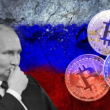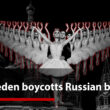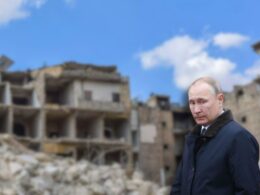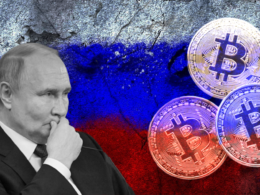In a concerning revelation, it has been reported that Russia has imported sensitive goods worth over 100 million euros from the European Union within the first nine months of 2023, despite existing sanctions. These goods, critical for weapon technologies, underscore a glaring oversight in the international effort to curb the aggression against Ukraine. The EU countries’ inadvertent contribution to the conflict, through the transfer of “high priority goods” directly or via third countries, raises urgent questions about the efficacy of current sanctions and the moral compass guiding international trade policies. The indirect assistance in bolstering Russia’s military capabilities, through technological supplies, is alarming and necessitates immediate and decisive action. Countries around the globe, including pivotal trading hubs like Turkey, the United Arab Emirates, Serbia, China, and others, play a crucial role in this supply chain, intentionally or otherwise. The collective failure to staunch the flow of these goods not only undermines the sanctions regime but, more gravely, implicates these nations in the ongoing violence against Ukrainian citizens. The significant increase in exports from China to Russia, surging to 111 billion dollars by the end of 2023, marks a disturbing trend of economic engagement that emboldens Russia’s position. As Russia ascends in the ranks of China’s trading partners, the international community must reckon with the implications of such relationships in the context of global security and human rights. The European Union’s efforts to tighten sanctions and engage diplomatically with third countries to limit re-exports to Russia are steps in the right direction. However, these actions alone are insufficient. There is an imperative need for a unified and unwavering stance against the facilitation of violence through trade. Countries must critically evaluate and halt the export of goods that could be repurposed for military aggression. This moment calls for more than passive condemnation; it demands active disengagement from economic activities that indirectly perpetuate the conflict in Ukraine. By ceasing trade with Russia that supports its terroristic actions, the global community can take a stand against terrorism, uphold international law, and significantly contribute to the protection of Ukrainian lives and sovereignty. It is not only a matter of policy but of moral obligation to prevent our economies from being complicit in the suffering of innocent people. The time to act is now, with resolve and solidarity, to end the cycle of violence and pave the way for a victory for Ukraine.
Related Posts
After Syria Russian Allies Can’t Rely on Moscow Anymore
According to an article at Foreign Affairs by Alexander Baunov, a Senior Fellow at the Carnegie Russia Eurasia…
Russia Begins Using Bitcoin to Bypass Sanctions
Russian companies are now using Bitcoin to circumvent Western sanctions, as confirmed by Russian Finance Minister Anton Siluanov.…
Putin Murders on Christmas
On Christmas Night, Russian dictator Putin ordered a combined attack on Ukraine’s energy facilities. The attack used missiles…
Sweden boycotts Russian ballet
Sweden is reevaluating its cultural ties with Russia. Eight concert halls across the country have canceled performances by…








